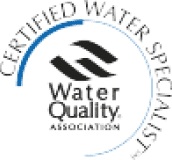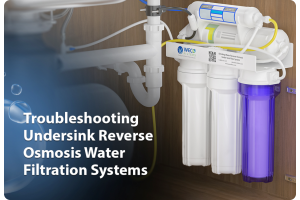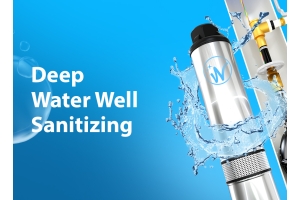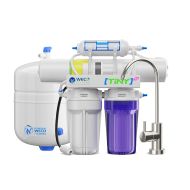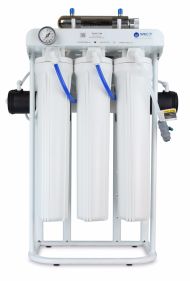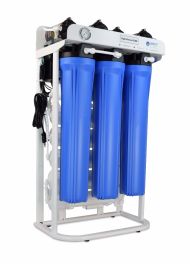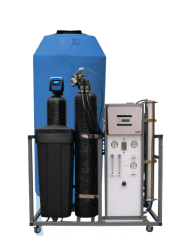Why to speak with a water treatment specialist and how to determine what water treatment equipment is best for you

Why do I need a water treatment specialist? Wont some equipment from the store work just fine?
When it comes to water treatment there is no turnkey solution that works for all water sources. The water that is supplied changes throughout the planet while also changing with the seasons. So there may be a setup in New York that works really well on their water source but it might not work well in California. Each water treatment system needs to be adjusted for based on the water that will be processed within the system. So if we want to find the perfect equipment to process our water we need to find a way to figure out what’s in the water. This is where a water sample should be obtained and sent in for analysis.
City Water vs Well Water?
A water analysis is important so a water treatment professional can assist you in what you need to do to treat your water. When it comes to your water sources, the two most common are well water and city water. When people are not in largely populated areas with no good way of getting city water, they usually have to use well water from their land. Well water is more cost effective as it is being obtained from land the customer owns. However, since water is a universal solvent it will obtain particles and compounds it comes into contact with. So as you can imagine, when you have a large well underground it will dissolve minerals, salts, and many other materials in the ground. Depending on where you live the composition of what’s in your well water depends on the ground beneath your feet. It also depends on what else can get into the water from nearby areas. We have all heard stories of ground water and well water being tarnished by chemicals from nearby businesses. So it is good to ensure your water is safe for consumption. This can be done by obtaining a water sample and sending it to your water treatment professional. He can tell you what you need to get the best water for your home or business.
Now well water might be different as its coming from the land and has no way of ensuring consistency. But city water that customers pay for has to comply with EPA standards. If they do not ensure the water they are providing is safe and complies to EPA standards, then the city would face costly lawsuits from customers they have affected. If you are ever curious about what is within your city water, the city is required to keep records of tested samples on a regular basis and make them publicly available to their customers. So as you can imagine to avoid those lawsuits they build large industrial water treatment plants to treat the water for their customers. Then they use large pumping stations to pressurize the water to get it out to the customers pipelines.
Will my water change and should I get it tested multiple times?
So depending on whether you use well water or city water you will face different obstacles. With city water, you are at the mercy of what the city provides to your pipes as to the water you get. The city most often obtains water from surface water sources. This provides different challenges as the water composition will change throughout the year as the weather changes. Well water however, being deep underground, will not change as easily with the weather as it goes unaffected by the changes at the surface. But well water will change as it obtains more from its surroundings or anything that may get into the water from contamination. So this begs the questions how often should we test our water to ensure we are treating it properly? For city water, since it will change with the weather it is best to at least test it 3-4 times a year. Then for well water it would be good to test it 1-2 times a year to ensure nothing has tarnished it or change it in some way.
Why should I get a lab test when I can get a field test?
When it comes to testing there is very precise laboratory tests and then there are somewhat precise field tests. The laboratory tests can be done to determine the exact ppm of all the elements and compounds in the water. This is the preferred test when determining the proper equipment to treat the water, but sometimes when there is something that has changed and is affecting your water a lot very suddenly then field tests are good to determine what can be altered to ensure optimum water quality. These are usually small titration kits where a certain amount of water needs to be measured out and then the titration packets need to be added to determine how much of the measured compound is in the water. Some examples of field test kits are kits that test for free chlorine, total chlorine, and total hardness.
To properly obtain a sample, a sample bottle (which the water treatment company can provide) will need to be used. These bottles keep from contaminating the samples to get the most accurate depiction possible. Then it is best to run water through you sample point for at least 1-2 minutes to ensure it is properly rinsed and will accurately present what’s in your water. The sample bottle needs to be filled to the rim and then sealed. The bottle then need to be sent to your water treatment professional so they can have laboratory tests done.
Once the tests have been done, the lab will break down the results and provide a document that tells you exactly what’s in the water. These results can then be used to determine what you would need to process your water properly and ensure you always have good water in your house or business. An example of the document you will be provided from the lab would be like the one provided in figure 1.
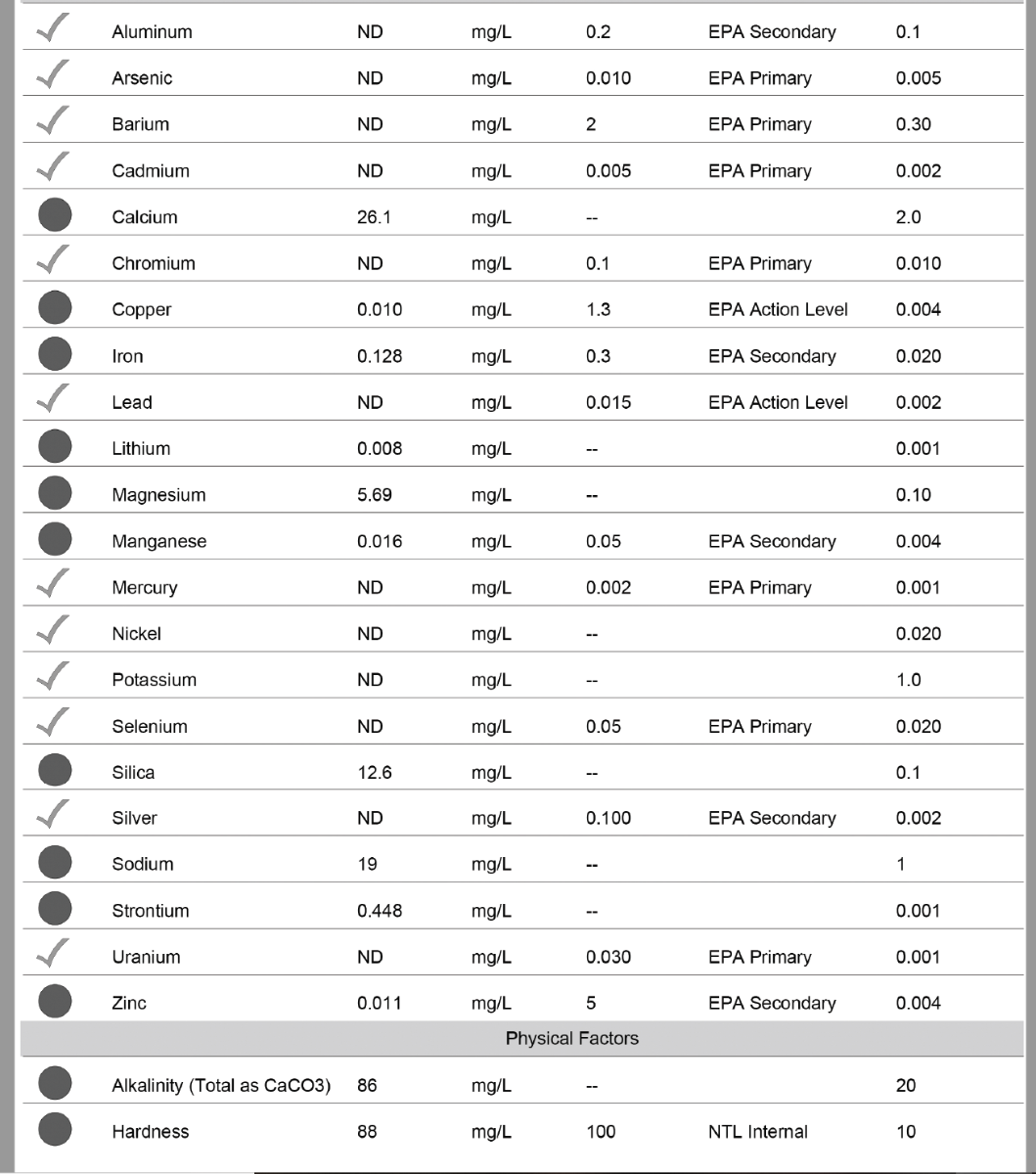
Figure 1: Example of the first page of a laboratory water sample test. Gives a breakdown of the ppm value for many elements and compounds.
Entire water treatment process or point of use treatment?
Now when it comes to how to treat your water, you can treat the entire house or just one point of use. An example of this are the refrigerators most of us use today. Many fridges today come with water lines to get cold water from the fridge but they also come with filters on them to slightly treat the water before it gets into your cup. We can apply that same theory across your house. The entire house can have treated water with larger equipment or smaller equipment can be used to treat certain points of use. So it is best to determine with your water treatment specialist if you would like to treat all of the water or if there are specific points of use you need the water treated. You can also apply this mentality to the amount of water treatment. If a activated carbon filter is needed or if one of the points of use need to go through many different pieces of equipment to ensure itgets treated more heavily. It isn’t al all or nothing thing. Different points of use can use more of less treatment based on your needs.
With all this information it is best to consult a water treatment specialist?
Now that we know we have different water sources, that can change throughout the year, the different tests that can be used and how much we can treat our water. How are we to determine what needs to be done? Well as you can imagine it would be hard to use all of this information to put together a solution to treat our water. It is much better to consult your water treatment specialist to determine what equipment you need to ensure you get the best water possible. They can help you throughout the entire process to be sure you are taken care of and that you have the best water for your family or business.




